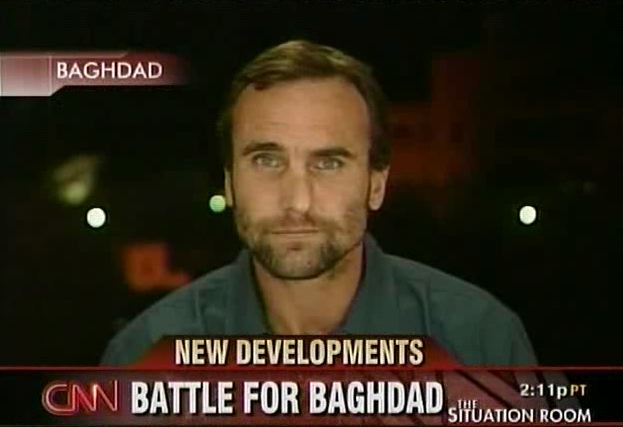TSR: "...a fundamental flaw to their plan."

Click photo to play
Length: 4:37
WOLF BLITZER: More now on what may turn out to be a last-ditch battle for Baghdad. Can U.S. troops defeat the death squads?
(BEGIN VIDEOTAPE)
BLITZER: And joining us now, our correspondent in Baghdad, Michael Ware.
Michael, you're familiar with what General Chiarelli told reporters over at the Pentagon; namely, that there's an important reason why troops have been redeployed away from the provinces like al-Anbar, toward Baghdad.
MICHAEL WARE, CNN CORRESPONDENT: Yes, that's right, Wolf.
General Chiarelli is saying that the focus is Baghdad. Now, this is -- this is a message that I've been hearing for the last month from the highest levels of U.S. military intelligence, from the military commanders themselves, and from the State Department here.
They are saying that as far as they are concerned, the front line is Baghdad, Baghdad, Baghdad. That right now, the war is going to be won or lost in the capital.
Indeed, they say that for al-Qaeda, it's the same priority. That if you asked al-Qaeda what their targets were, it would be a similar answer: Baghdad, Baghdad, and then al-Anbar.
However, I think that misconstrues al-Qaeda's true intentions. You just need to speak to al-Qaeda or read their own information. They make it clear that Baghdad to them is just one theater of many. And their base is al-Anbar.
The real story behind the concentration of troops here in Iraq, according to senior State Department and military intelligence officials I've spoken to, is that they need to restore order in the capital so that they can develop a popular base of support for a powerless prime minister. The prime minister here is essentially propped up by the U.S. He does not have his own support base, nor does he have his own militia.
So if security can be delivered to the people, then it's hoped from the U.S. side that credit can be given to this prime minister, and that that will give him a wedge against the militias which dominate and actually control his government -- Wolf.
BLITZER: Michael, one of the most gruesome, horrifying situations that has developed in Iraq, and specifically this week, the dozens and dozens of bodies that have been picked up. Clearly tortured, mutilated.
What's going on here?
WARE: Look, this is the death squads. This is the sectarian war.
I mean, you've got extremists on both sides. Al-Qaeda on the Sunni side, and you've got extremist Shia elements buried within the government. And according to the U.S. ambassador here, backed by Iran, trying to polarize the general community.
Now, they're doing that through the sectarian killings. The problem is that it's almost impossible for the U.S. military to stop. No matter what they are saying about the success, or, as they deem it, the progress of Operation Together, the Battle for Baghdad, the killings continue.
The military tries to minimize this by saying that, well, in the areas we're in it's less. However, there's a fundamental flaw to their plan.
The U.S. troops, in conjunction with Iraqi troops, go into an area, clear it, seize it, hold it. The next phase is they hand it over, back to the Iraqi police and the Ministry of the Interior troops -- the very people that the American administration alleges are connected to the death squads in the first place -- Wolf.
BLITZER: This notion, though, I can understand the killing, because in every civil war there's a lot of killing. But the mutilation and the torture, what's behind this? Why are Sunnis doing this to Shia, Shia doing it to Sunnis, the whole nature of the torture and mutilation?
WARE: Well, this is something I've been talking to particularly some Shia militia members I know. I mean, I've been wondering myself, what's in the mind of the man who is doing the torturing? I mean, he must have a room somewhere where he brings in these victims and tortures them, puts drills through their knees, through their arms, into their heads. For what purpose? It's not to extract information. It's purely to send a message.
Now, al-Qaeda and other extremist groups are doing the same thing on the other side. It's about provocation.
The aim on both sides -- for example, as the al-Qaeda -- former al-Qaeda leader, Abu Musab al-Zarqawi, said, let's provoke the Shia. Get them to rise up, which seems to be working. It's only this that will awake the sleeping Sunni giant.
So the extremists on both sides are mutilating victims on the other just to inflame and enrage their own populations -- Wolf.
BLITZER: Michael Ware reporting for us.
Michael, be careful over there. Thanks very much.
